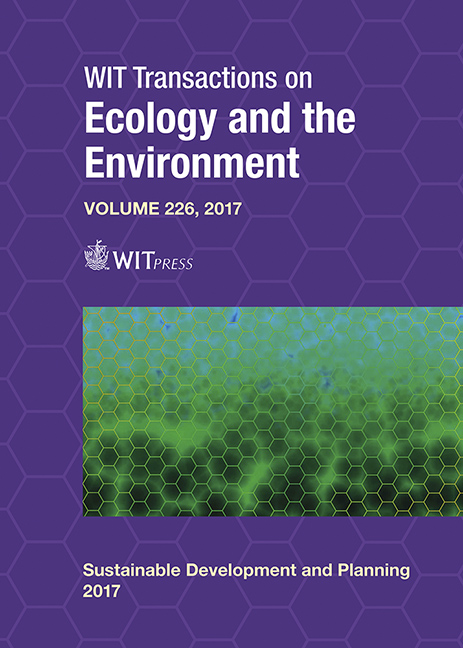EFFECTS ON THE REGISTRATION AND LICENSING OF MICROENTERPRISES IN AN INFORMAL ECONOMY: FURTHER EVIDENCE FROM THE OTA AREA, NIGERIA
Price
Free (open access)
Transaction
Volume
226
Pages
7
Page Range
441 - 447
Published
2017
Size
426 kb
Paper DOI
10.2495/SDP170381
Copyright
WIT Press
Author(s)
EBENEZER BOWALE, ADEDAYO ODUKOYA, PHILLIP ALEGE, TOLU AKIODE
Abstract
This study examined the effects of business formality on microenterprises in an informal economy, with particular reference to the Ota area in Ogun State, Nigeria. This study area reflects the typical Nigerian business environment with all the characteristics of an informal economy. Data were collected using questionnaires from a sample of 200 microenterprises. The owners of 161 microenterprises responded (81 per cent response rate). The sampling frame for the survey consisted of microenterprises that employ no more than 10 workers. Five lines of businesses were identified for the survey. These included light manufacturing, trading, agro-allied, vocation and professional services. These businesses provided a good representation of the self-employed and small employers in the study area. The questionnaire comprised three sections: a socio-demographic profile in section A, the businesses characteristics of the microbusinesses in Section B, and the underlying factors that influence the capacity of small and medium-sized enterprises to generate income in section C. The data collected were analysed using descriptive statistics. A probit model was used to estimate the identified variables. The results showed that most (69%) of the microenterprises surveyed were owned by males. The main business in the area was trading. The results also revealed that most (65%) of the enterprises have been in operation for more than five years. It was also discovered that the majority of the business owners had not registered their businesses with government agencies; instead, most of them had registered with local organizations. Few of them (35%) had licensed their businesses. Furthermore, the results showed that gender (coef. = 0.394, p < 0.01) and business focus (coef. = 0.297, p < 0.05) were significant factors determining the income generation potential of microenterprises. However, business type, business registration, licensing, age of business, educational level, and age of owners were not significant in determining the income generation of the firms. The study concluded that business formality (registration and licensing) has no significant effect on the income-generation potential of microenterprises in the Ota area, Nigeria.
Keywords
microenterprises, formality, income, Ota area, Nigeria





